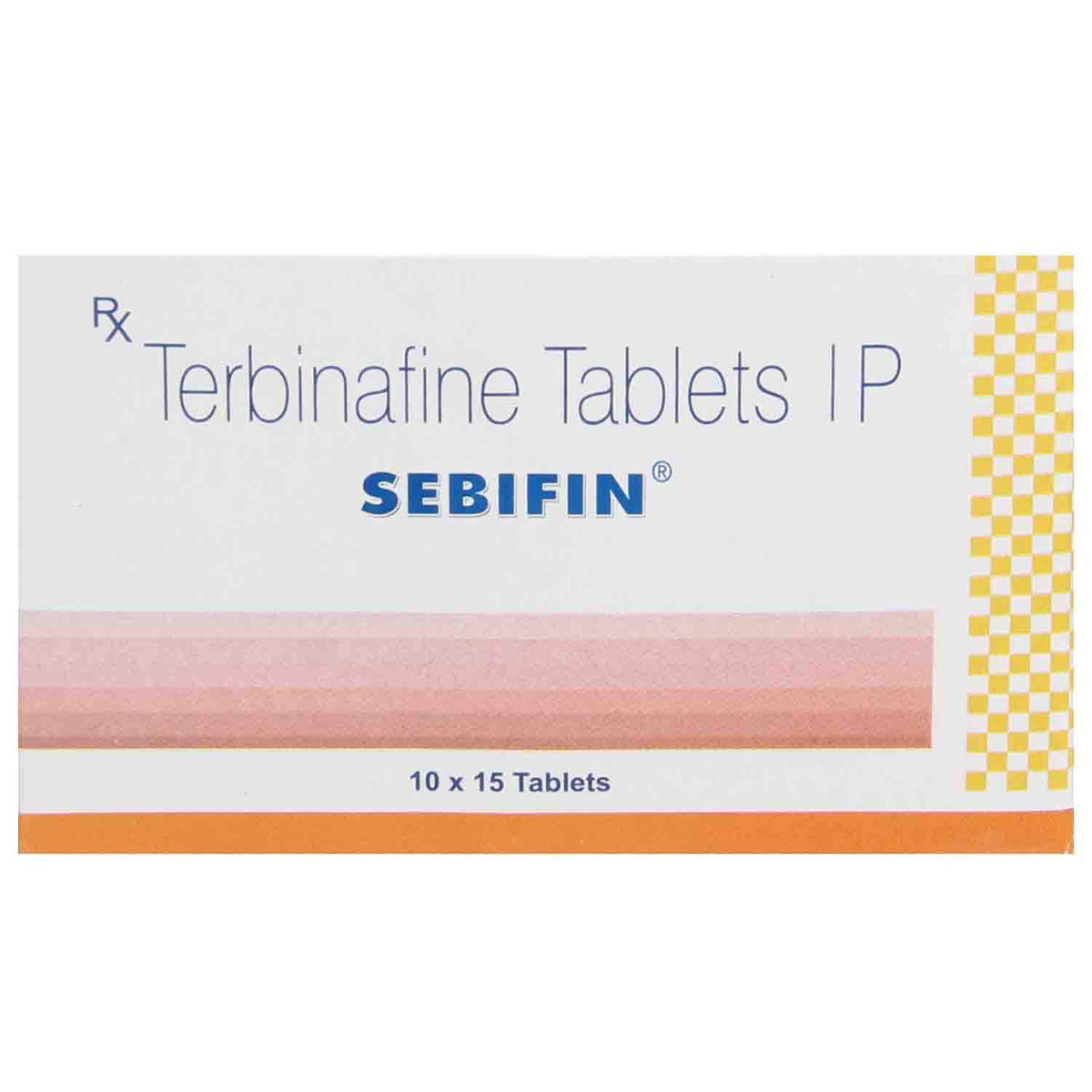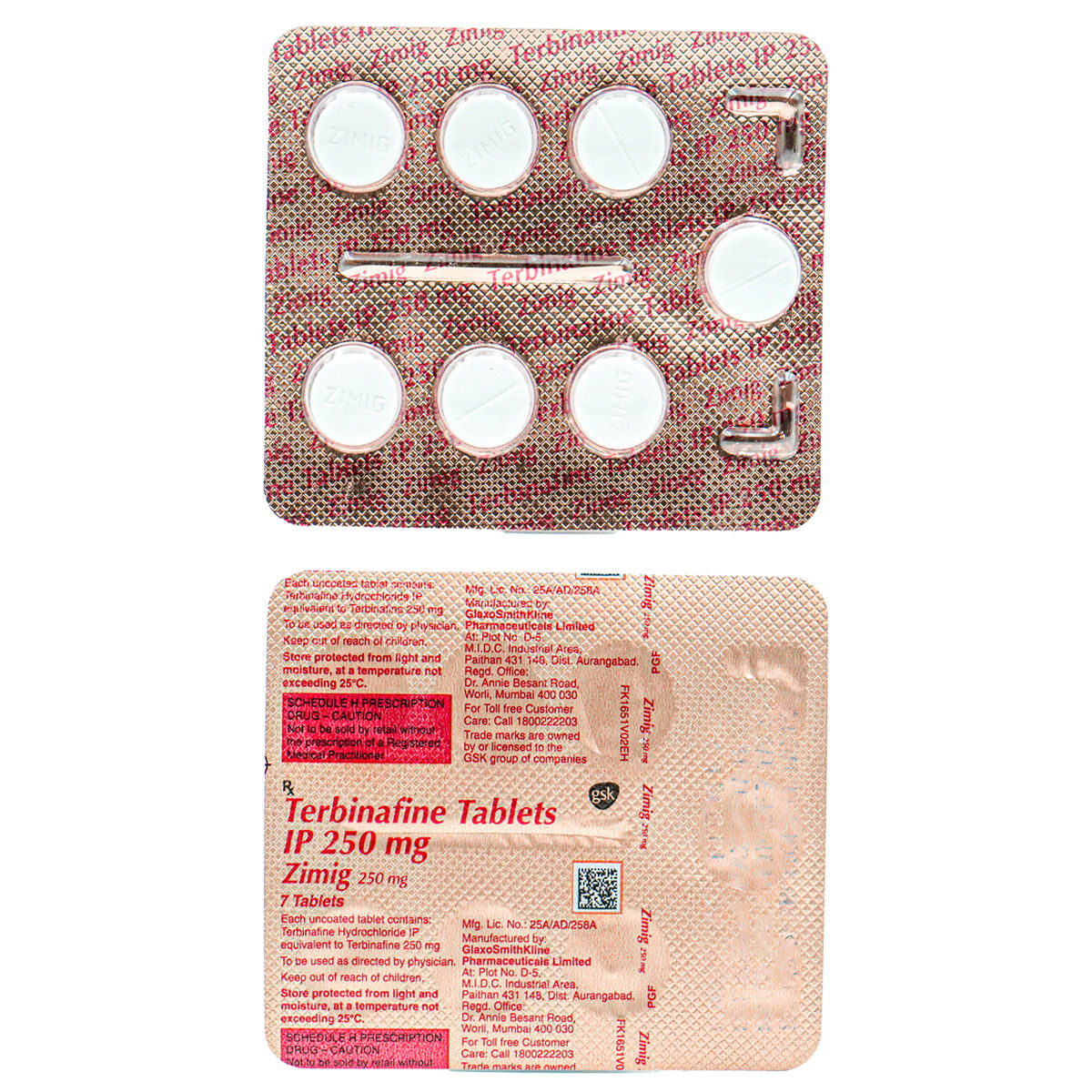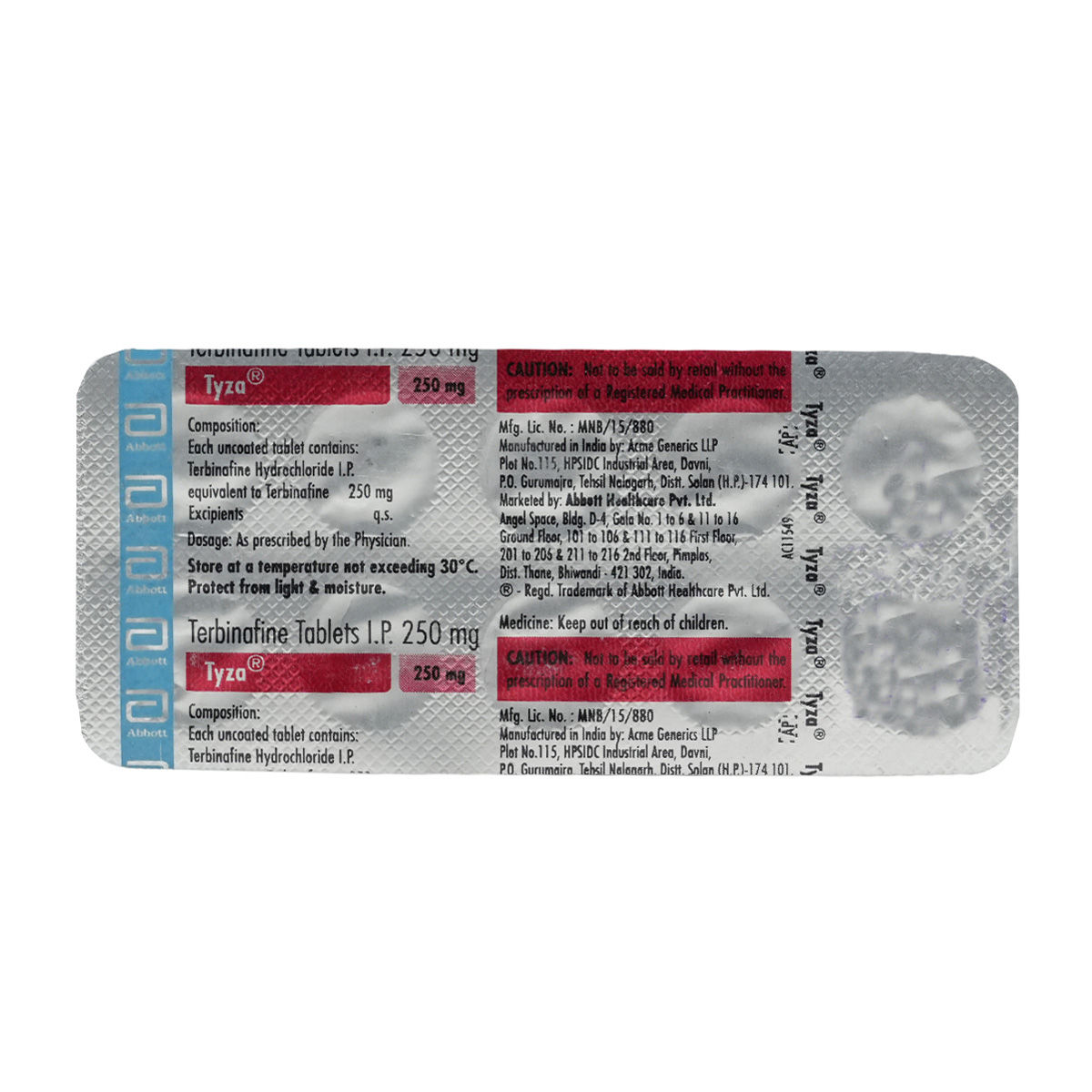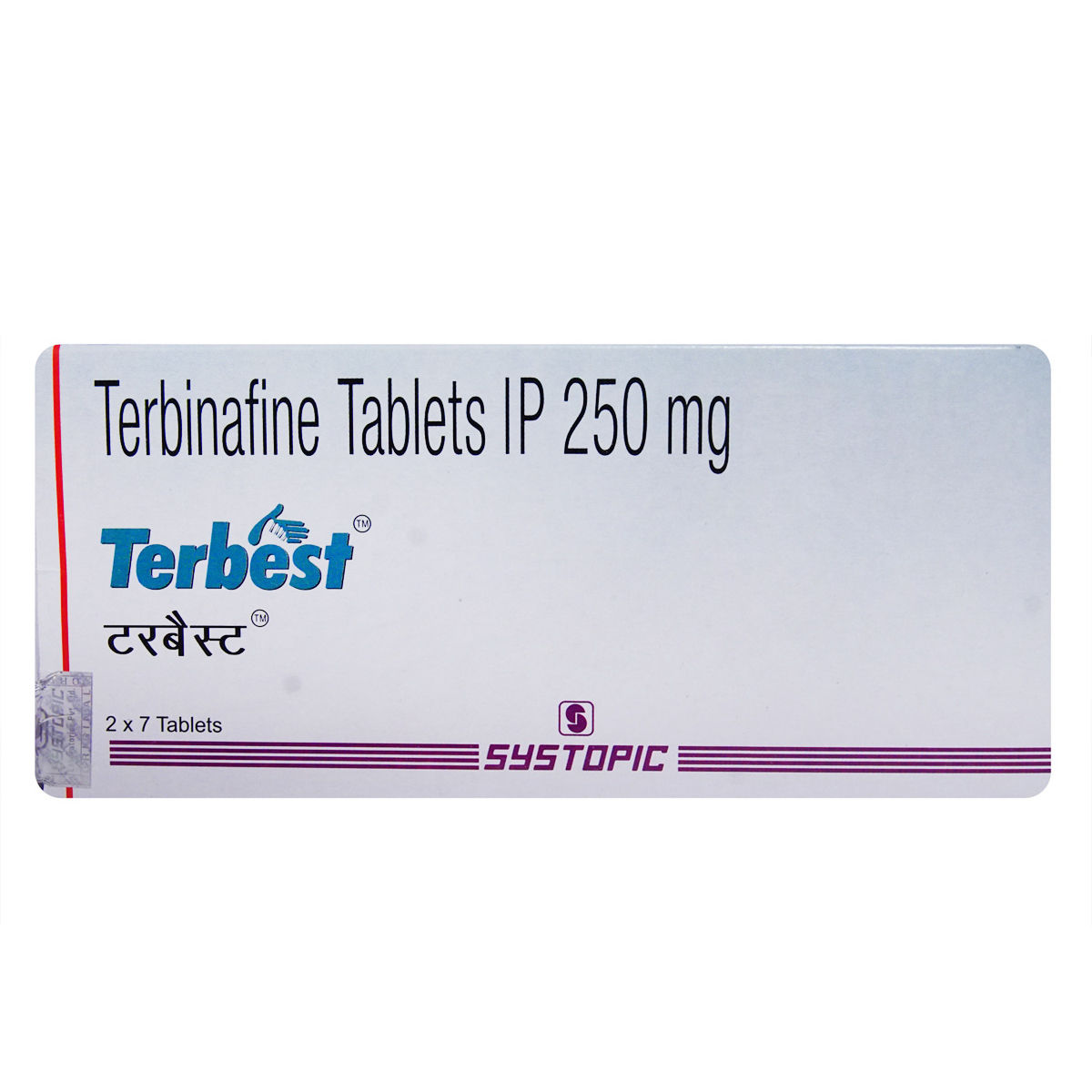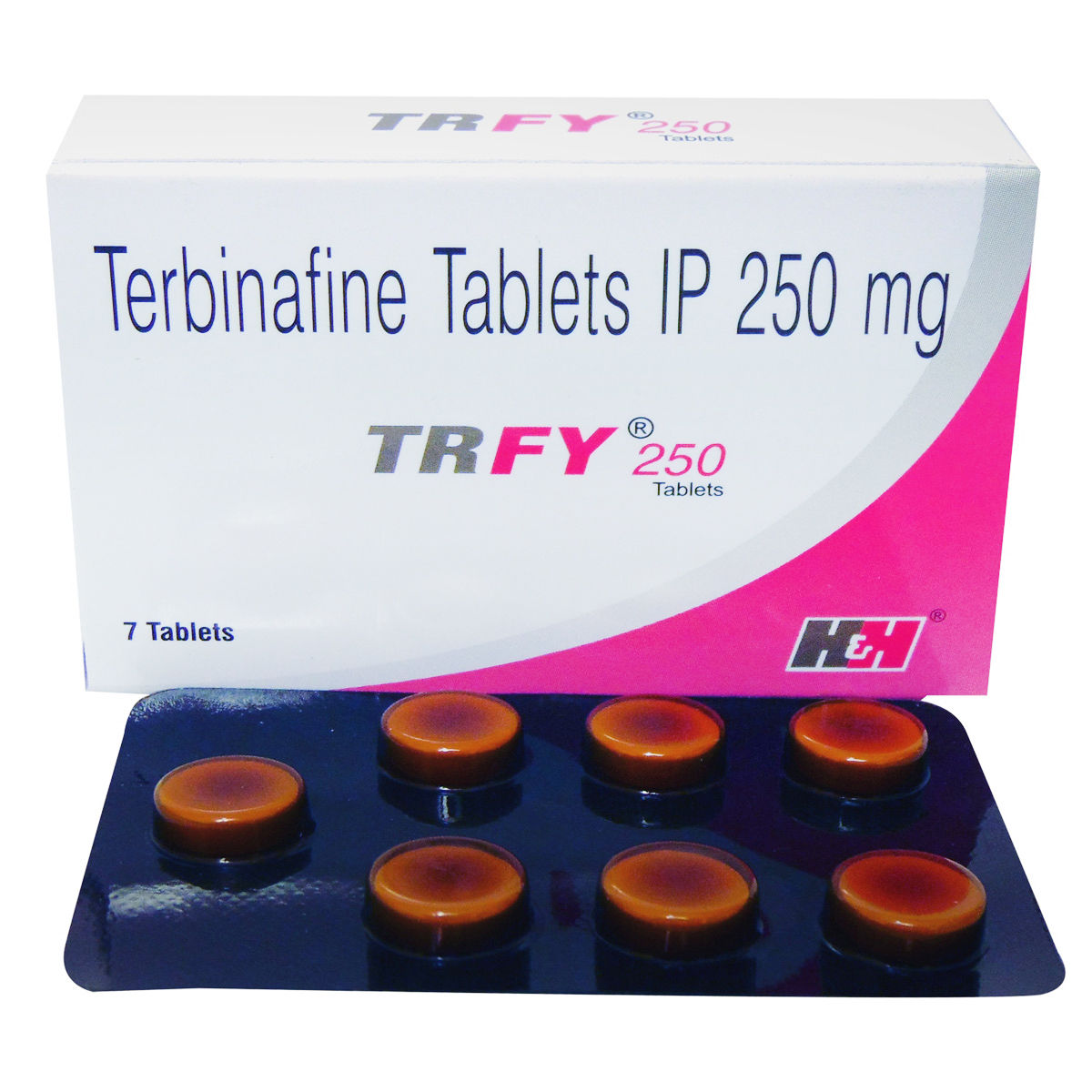Keptafine Tablet 7's
₹20.7*
MRP ₹23
10% off
₹19.55*
MRP ₹23
15% CB
₹3.45 cashback(15%)
Free Delivery
With Circle membership
(Inclusive of all Taxes)
This offer price is valid on orders above ₹800. Apply coupon PHARMA10/PHARMA18 (excluding restricted items)
Know Your Delivery Time
Provide Delivery Location

Available Offers
 Prescription drug
Prescription drugWhats That

Secure Payment

India's Most Trusted Pharmacy

Genuine Products
Composition :
Manufacturer/Marketer :
Consume Type :
Return Policy :
Expires on or after :
About Keptafine Tablet
Keptafine Tablet is an antifungal medicine that is used to treat fungal infections of toenails and fingernails. Oral granules are used to treat tinea capitis (scalp ringworm). Fungal nail infections (onychomycosis) are common infections of toenails or fingernails that cause the nail to become thick, discoloured, or more likely to break. Tinea capitis is a fungal infection of the scalp that is contagious and causes bald, itchy, and scaly patches of the ring shape.
Keptafine Tablet contains Terbinafine, an antifungal that works by damaging the fungal cell membranes, which are essential for their survival as they prevent the entry of unwanted substances into the cells and stop the leakage of cell contents. Thereby, kills fungi and clears the fungal infection.
Take Keptafine Tablet as prescribed. Your doctor will advise you on how often you need to take Keptafine Tablet based on your medical condition. Some people may experience diarrhoea, stomach pain, headache, and change in taste or loss of taste. Most of these side effects of Keptafine Tablet do not require medical attention and gradually resolve over time. However, if the side effects persist or worsen, please consult your doctor.
If you are allergic to Terbinafine, avoid taking Keptafine Tablet. If you are pregnant or a nursing mother, it is advised to consult a doctor before using Keptafine Tablet. Avoid or limit sun exposure while using Keptafine Tablet as it may make skin more sensitive to sunlight. Wear protective clothing and use sunscreen while going out to protect your skin from sunburn. If you have depressive symptoms such as feeling worthless or sad, loss of interest or energy in daily activities, mood changes, restlessness, or change in sleep pattern, inform your doctor immediately.
Uses of Keptafine Tablet
Directions for Use
Medicinal Benefits
Keptafine Tablet is an antifungal. Tablets are used to treat fungal infections of toenails and fingernails. Oral granules are used to treat tinea capitis (scalp ringworm). Keptafine Tablet destroys fungal cell membranes that are essential for their survival as they prevent the entry of unwanted substances into the cells and stop the leakage of cell contents. Thus, it kills fungi and clears infection.
How Keptafine Tablet Works
Storage
Side Effects of Keptafine Tablet
Tablets:
- Diarrhoea
- Indigestion
- Stomach pain
- Headache
- Taste disturbance
- Nausea
- Flatulence (gas)
Oral granules:
- Fever
- Vomiting
- Headache
- Diarrhoea
- Cough
- Nasal congestion
What if I have taken an overdose of Keptafine Tablet
Drug Warnings
If you are allergic to terbinafine, avoid taking Keptafine Tablet. If you are pregnant or a nursing mother, it is advised to consult a doctor before using Keptafine Tablet. Avoid or limit sun exposure while using Keptafine Tablet as it may make skin more sensitive to sunlight. Wear protective clothing and use sunscreen while going out to protect your skin from sunburn. If you have lupus (an autoimmune disease), weakened immune system, kidney or liver problems, inform your doctor before taking Keptafine Tablet. If you have depressive symptoms such as feeling worthless or sad, loss of interest or energy in daily activities, mood changes, restlessness, or change in sleep pattern, inform your doctor immediately.
Drug-Drug Interactions
Drug-Drug Interactions
Login/Sign Up
Co-administration of Thioridazine together with Keptafine Tablet 7's can increase the blood levels of Thioridazine and increase the risk of an irregular heart rhythm.
How to manage the interaction:
Co-administration of Thioridazine and Keptafine Tablet 7's is not recommended as it can lead to an interaction, it can be taken if advised by your doctor. However, if you experience any symptoms like sudden dizziness, lightheadedness, fainting, shortness of breath, or heart palpitations, contact your doctor immediately. Do not discontinue any medications without first consulting your doctor.
Co-administration of Pimozide and Keptafine Tablet 7's can increase the blood levels of pimozide and the risk of side effects.
How to manage the interaction:
Co-administration of pimozide and Keptafine Tablet 7's is not recommended as it can lead to an interaction, but it can be taken if your doctor advises. However, if you experience any symptoms like muscle spasms or movements that you can't stop or control, such as lip smacking, chewing, puckering, frowning or scowling, tongue thrusting, teeth clenching, jaw twitching, blinking, eye-rolling, shaking or jerking of arms and legs, tremor, jitteriness, restlessness, pacing, and foot tapping, dizziness, lightheadedness, fainting, shortness of breath, or heart palpitations, contact your doctor immediately. Do not discontinue any medications without consulting your doctor.
Co-administration of Lomitapide and Keptafine Tablet 7's can increase the risk or severity of liver problems.
How to manage the interaction:
Co-administration of Lomitapide and Keptafine Tablet 7's can lead to an interaction, but it can be taken if your doctor advises. However, if you experience any symptoms like fever, chills, joint pain or swelling, unusual bleeding or bruising, skin rash, itching, loss of appetite, fatigue, nausea, vomiting, abdominal pain, dark-colored urine, light-colored stools, and/or yellowing of the skin or eyes, contact your doctor immediately. Do not discontinue any medications without consulting your doctor.
Co-administration of Leflunomide and Keptafine Tablet 7's can increase the risk or severity of liver problems.
How to manage the interaction:
Although there is an interaction between leflunomide and Keptafine Tablet 7's, they can be taken together if prescribed by a doctor. However, if you experience fever, chills, joint pain or swelling, unusual bleeding or bruising, skin rash, itching, less desire to eat, fatigue, nausea, vomiting, abdominal pain, or yellowing of the skin or eyes, contact a doctor immediately. Do not discontinue any medications without consulting a doctor.
Co-administration of Pitolisant and Keptafine Tablet 7's can increase the risk of an irregular heart rhythm and increase the blood levels of Pitolisant.
How to manage the interaction:
Co-administration of Pitolisant and Keptafine Tablet 7's can lead to an interaction, it can be taken if advised by your doctor. However, if you experience any symptoms like headache, insomnia, nausea, anxiety, increased heart rate, hallucinations, abdominal pain, and muscle pain, diarrhea or vomiting, contact your doctor immediately. Do not discontinue any medications without consulting your doctor.
Co-administration of Vortioxetine and Keptafine Tablet 7's can increase the blood levels and side effects of vortioxetine like serotonin syndrome (A condition in which a chemical called serotonin builds up in your body)
How to manage the interaction:
Co-administration of Vortioxetine and Keptafine Tablet 7's can lead to an interaction, but it can be taken if a doctor advises. However, if you experience any symptoms like confusion, hallucination, seizure, increased heart rate, fever, excessive sweating, shivering or shaking, blurred vision, muscle spasm or stiffness, tremor, incoordination, stomach cramps, nausea, vomiting, diarrhea, contact a doctor immediately. Do not discontinue any medications without consulting a doctor.
Co-administration of Tamoxifen with Keptafine Tablet 7's may reduce the effectiveness of Tamoxifen.
How to manage the interaction:
Although taking Tamoxifen and Keptafine Tablet 7's together can possibly result in an interaction, it can be taken if your doctor has advised it. However, if you experience any symptoms, contact your doctor immediately. Do not discontinue any medications without consulting a doctor.
Co-administration of Teriflunomide and Keptafine Tablet 7's can increase the risk or severity of liver problems.
How to manage the interaction:
Co-administration of Teriflunomide and Keptafine Tablet 7's can lead to an interaction, but it can be taken if your doctor advises. However, if you experience symptoms like fever, chills, joint pain or swelling, unusual bleeding or bruising, skin rash, itching, loss of appetite, fatigue, nausea, vomiting, abdominal pain, dark-colored urine, light-colored stools, and/or yellowing of the skin or eyes, contact your doctor immediately. Do not discontinue any medications without first consulting your doctor.
Co-administration of Dextromethorphan and Keptafine Tablet 7's may increase the side effects of Dextromethorphan.
How to manage the interaction:
Taking Dextromethorphan and Keptafine Tablet 7's together can possibly result in an interaction, but it can be taken if a doctor has advised it. However, if you experience any symptoms like difficulty breathing, dizziness, drowsiness, anxiety, restless feeling, nervousness, confusion, or diarrhea, contact a doctor immediately. Do not discontinue any medications without consulting a doctor.
Coadministration of Keptafine Tablet 7's with Eliglustat can increase the levels and side effects of Eliglustat.
How to manage the interaction:
Although there is a possible interaction between Keptafine Tablet 7's and Eliglustat, you can take these medicines together if prescribed by your doctor. However, if you experience nausea, upset stomach, abdominal pain, gas/bloating, diarrhea, headache, back pain, arm/leg pain, dizziness, or weakness, contact your doctor immediately. Do not discontinue any medications without consulting a doctor.
Drug-Food Interactions
Drug-Food Interactions
Login/Sign Up
Diet & Lifestyle Advise
Fungal nail infections (onychomycosis):
Keep your feet and hands clean and dry.
Cut your toenails and fingernails short and keep them clean.
Avoid sharing nail clippers with others.
In wet places such as changing rooms and gym showers, wear footwear to prevent fungal infections.
Chose a clean and licensed salon and make sure that all the instruments in the salon are sterilized after each use.
Avoid sun exposure while taking Keptafine Tablet as it may make skin more sensitive to sunlight. Wear protective clothing and use sunscreen while going out to protect your skin from sunburn.
Tinea capitis (scalp ringworm):
Shampoo your child's scalp regularly, especially after a haircut.
Use scalp conditioning products such as pomades with selenium and coconut oil as they might help to prevent scalp ringworm.
Make sure your children wash their hands regularly even after playing with pets and keep their skin clean and dry.
Avoid infected animals.
Keep shared areas clean especially childcare centres and schools.
Teach children to avoid sharing personal items such as towels, clothing, hairbrushes, etc.
Habit Forming
Therapeutic Class
Keptafine Tablet Substitute

Sebifin Tablet 15's
₹31.02per tabletZimig 250 Tablet 7's
₹52.91per tabletTerbinaforce Tablet 7's
₹15.56per tabletTerbicip 250 Tablet 15's
by AYUR
₹31.14per tabletTyza 250 mg Tablet 10's
₹24.57per tablet
Product Substitutes
Alcohol
Caution
Interaction of alcohol with Keptafine Tablet is unknown. Please consult a doctor before consuming alcohol with Keptafine Tablet.
Pregnancy
Caution
Keptafine Tablet is Category B pregnancy drug and is given to a pregnant women only if the doctor thinks benefits outweigh risks.
Breast Feeding
Unsafe
Keptafine Tablet may be excreted in human milk and harm the baby. Therefore, it is not advised for breastfeeding mothers.
Driving
Caution
Keptafine Tablet may cause dizziness. Therefore, drive only if you alert after taking Keptafine Tablet.
Liver
Caution
Take Keptafine Tablet with caution, especially if you have a history of Liver diseases/conditions. The dose may be adjusted by your doctor as required.
Kidney
Caution
Take Keptafine Tablet with caution, especially if you have a history of Kidney diseases/conditions. The dose may be adjusted by your doctor as required.
Children
Caution
Tablets are not recommended for children below 12 years as the safety and effectiveness were not established. Oral granules are recommended for children aged 4 years and above if prescribed by the doctor.
FAQs
Country of origin
Manufacturer/Marketer address
Disclaimer
Author Details
We provide you with authentic, trustworthy and relevant information






